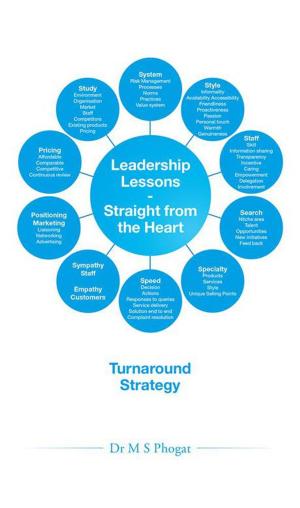Selected Speeches of Dr. D. Swaminadhan
Nonfiction, Reference & Language, Education & Teaching, Higher Education, Foreign Languages| Author: | ISBN: | 9781482813128 | |
| Publisher: | Partridge Publishing India | Publication: | November 18, 2013 |
| Imprint: | Partridge Publishing India | Language: | English |
| Author: | |
| ISBN: | 9781482813128 |
| Publisher: | Partridge Publishing India |
| Publication: | November 18, 2013 |
| Imprint: | Partridge Publishing India |
| Language: | English |
The Selected Speeches of Dr.Swaminathan cover a wide range of disciplines ranging from sociocultural development to the tools of economic development like higher education, technical education, environment, science and engineering, and technology. The first part covers higher and technical education, value education, engineering and technology, environment, and science. The second part covers the disciplines of development studies, economy, finance, planning, rural development, urban development, tribal development, nongovernmental organisations, and general areas. Independent India wanted to build a modern, strong, dynamic, and self-reliant nation and embarked on the path of planned economic development. Growth, modernisation, self-reliance, and social justice are the basic objectives governing Indian planning. Dr. D. Swaminathans lecturers presented a clear view about Indias planning process. In the context of globalization, reforms in higher and technical education have been set in motion in India. The need for effective cooperation between universities, industries, R&D national laboratories, and the national scientific and engineering associations and bodies has been well recognised for bringing relevance in higher and technical education and for indigenous technology development and sharing of resources. In this context, Swaminathan Model for University-Industry- National R&D LaboratoriesProfessional Bodies and Academies Interaction for Countrys Economic Development plays an important role.
The Selected Speeches of Dr.Swaminathan cover a wide range of disciplines ranging from sociocultural development to the tools of economic development like higher education, technical education, environment, science and engineering, and technology. The first part covers higher and technical education, value education, engineering and technology, environment, and science. The second part covers the disciplines of development studies, economy, finance, planning, rural development, urban development, tribal development, nongovernmental organisations, and general areas. Independent India wanted to build a modern, strong, dynamic, and self-reliant nation and embarked on the path of planned economic development. Growth, modernisation, self-reliance, and social justice are the basic objectives governing Indian planning. Dr. D. Swaminathans lecturers presented a clear view about Indias planning process. In the context of globalization, reforms in higher and technical education have been set in motion in India. The need for effective cooperation between universities, industries, R&D national laboratories, and the national scientific and engineering associations and bodies has been well recognised for bringing relevance in higher and technical education and for indigenous technology development and sharing of resources. In this context, Swaminathan Model for University-Industry- National R&D LaboratoriesProfessional Bodies and Academies Interaction for Countrys Economic Development plays an important role.















